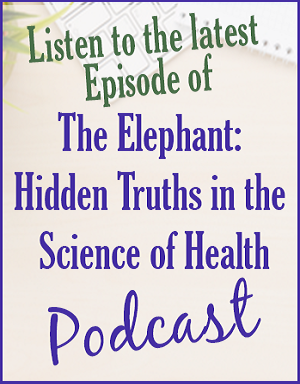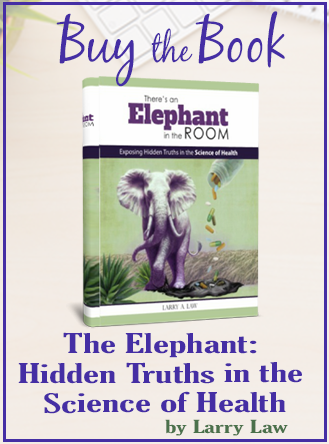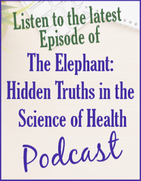Larry A. Law
Fasting Basics
There are two kinds of fasting approaches—prolonged fasting and intermittent fasting. Prolonged fasting lasts at least 36 hours. It tends to be the most effective at activating the reset and renewal of cells and tissues. Intermittent fasting involves shorter periods of 12 to 24 hours. Consuming food is fundamentally inflammatory, because eating introduces external nutrients and pathogens into the internal pathways of the body. The immune system goes on alert while it responds, investigates, takes care of problems, and then quiets back down (acquiesces) to this foreign invasion. This temporary period of inflammation is actually beneficial to the body as it helps the immune system eliminate any pathogens and keep the body safe. Frequent snacking, on the other hand, keeps the body in a fed state that leads to a state of inflammation that never goes away—chronic inflammation. Chronic inflammation has a very negative effect on the body. It increases stress hormones, elevates blood pressure, reduces insulin sensitivity, causes cell and tissue damage, and impairs healing. This is why chronic inflammation is associated with obesity, Type 2 diabetes, Alzheimer's disease, cancer, and a plethora of other diseases. In contrast to a constant fed state, both intermittent and prolonged fasting activate genes that suppress inflammation, reduce inflammatory immune system cells, and mitigate autoimmunity. A study published in Cell, August 22, 2019 found that a thee-day fast resets the immune system by degrading old immune cells and regenerating new ones.
Long COVID and COVID-19 Vaccine Injury
FLCCC doctors found that the laboratory-bioengineered COVID-19 spike protein (actually a glycoprotein) from the virus or the vaccine is highly toxic. These spike glycoproteins lead to inflammation, microclotting, mitochondrial dysfunction, autoimmunity, neurological issues, and other medical complications. In most cells, a metabolic process called chaperone-mediated autophagy (CMA) acts like quality control in the degradation of old or damaged proteins. CMA also breaks down protein into individual amino acids for energy production in times of longer starvation. CMA typically begins to activate after 24 hours of fasting. This is why the FLCCC recommends prolonged fasting of 72 hours or more so that the harmful spike glycoproteins will be degraded and eliminated from the body. Spike glycoproteins tend to hide away in fat cells and evade immediate immune system detection. This one approach often cures the side effects of long COVID like brain fog, loss of smell and taste, and other symptoms as the spike protein is removed and eliminated from the body.
Fasting for Weight Loss?
Fasting interventions are often compared to ketogenic diets which are high in fat but low on carbohydrates. This dietary approach maintains low insulin levels and promotes the breakdown of fat including the especially harmful visceral fat (firmer versus jiggly type) associated with inflammation. Low insulin levels enhance fat breakdown and weight loss. When insulin is high, energy storage is prioritized over fat breakdown, leading to limited fat use. This is the reason fasting has been implemented in diabetes treatment protocols. Both intermittent and prolonged fasting reduce meal frequency, leading to decreased insulin release and improved management of blood sugar levels. One warning: It is important not to overeat when breaking a fast. Consuming excess calories can result in weight gain because the body reverts to storing surplus as fat.
Fasting and Alzheimer's Disease
Many people report benefits in cognitive function and mental clarity while fasting. Studies show that fasting increases the brain-derived neurotropic factor (BDNF). This is a protein that supports the survival of old neurons in the brain. At the same time, it encourages the formation of new neurons and connections essential to neural plasticity needed for learning and memory. The cell's waste disposal mechanism (autophagy) during fasting helps regenerate neurons and clear out old protein debris associated with Alzheimer's disease. Dr. Dale Bredesen, who is the author of The End of Alzheimer's and chief science officer at Apollo Health, claims to reverse his patient's symptoms when they follow his protocol which includes a 12-14-hour daily fast. His protocol also includes getting sufficient sleep, exercising, and eating a diet rich in whole foods, pasture-raised meats, and low-grain and low-glycemic foods.
Fasting and Cancer
At least 13 cancers are obesity-associated cancers. Colorectal, kidney, thyroid, pancreatic, liver, ovarian, esophagus, gall bladder, and post-menopausal breast cancers are all in that list. Elevated insulin levels are linked to increased risk for breast, prostate, and colorectal cancers. So, since fasting reduces insulin levels, that aspect could prove to be an effective treatment option in the fight against cancer. In our culture, fasting is often equated with starvation. But when our vision and purpose are clear and our confidence in the science is strongly established, we can hold fast and endure the temporary side effects of feeling hungry and the mood swings that accompany it. An accountability partner can be a great help when introducing this type of eating into your routine. Once it is an established pattern, it isn't hard to keep it going!
6 Comments
Mary Ann McConkie
9/19/2023 09:50:09 pm
Really good to read about fasting. Thanks for all your research. I am an intermittent faster -- but generally do it for 16 hours. I can't imagine fasting for 36 hours!
Reply
Larry Law
11/1/2023 09:02:31 pm
Thanks Mary Ann. I have done some longer fasts and it is interesting how your body adjusts and you don't even feel particularly hungry any more. But I do like the shorter intermittent fasts too—they are really effective.
Reply
Nola
9/27/2023 09:03:10 pm
I appreciate how you put medical speak into what is easily understood by the lay person. I am an intermittent faster, usually 12-14 hours, but did a 48 hour water fast a few months ago. I was surprised that I didn't feel hungry and when ending the fast with a light, easily digestible meal, I felt great. Dropping a couple of pounds was an added bonus.
Reply
Larry Law
11/1/2023 09:04:21 pm
Hi Nola,
Reply
2/27/2024 01:16:14 pm
I am glad I read this article on fasting. Since I joined the church I have done it every month for 60 years. A question about fasting 12-14 hours daily: does that include not drinking any liquids, especially water?
Reply
Larry Law
2/27/2024 04:35:16 pm
Great questions Carol. A fast less than 24 hours would normally involve not eating food and not drinking liquid. But I know many people who drink water during this period to avoid headaches caused by dehydration. Everyone has the right to decide what their physical health requires. Many people don't eat but still take their supplements with water.
Reply
Leave a Reply. |
BlogArchives
July 2024
Categories
All
|
© Angie's Option GRM. All rights reserved.








 RSS Feed
RSS Feed

